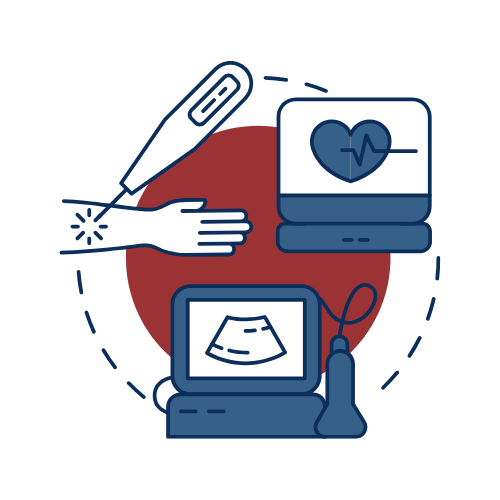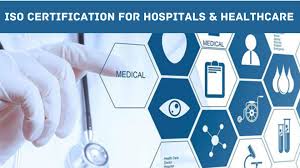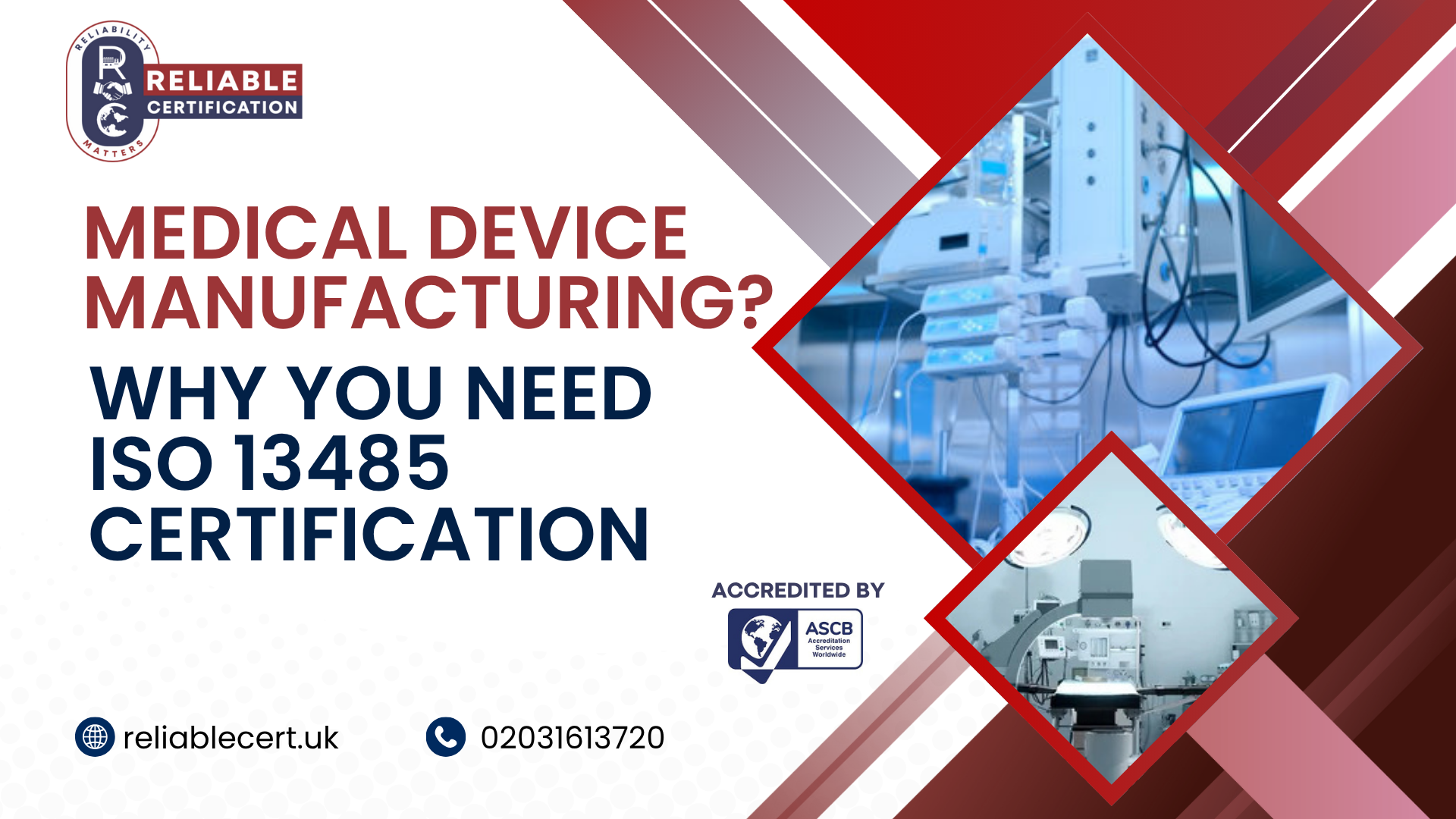While satisfying world regulatory criteria, ISO 13485 certification guarantees the quality and safety of medical equipment. This Certification enables companies to increase operational effectiveness, foster trust and enter foreign markets.
Reliable Certification has helped many companies attain ISO 13485 Certification, preserving compliance, improving product safety, and obtaining a competitive edge in the medical device sector.
 ISO 13485
Medical Devices Management
ISO 13485
Medical Devices Management
By submitting your information, you are agreeing to our Terms & Conditions and our Privacy Policy.
Globally accepted ISO 13485 certification is intended primarily for medical device sector quality control systems. It offers a structure for companies to guarantee the consistent design, development, manufacture, installation, and delivery of medical equipment, satisfying legal criteria and improving patient safety. Being ISO 13485 Certified shows dedication to compliance and quality, so it is necessary for businesses in this field.
Designed by the International Organization for Standardizing (ISO), ISO 13485 is a globally accepted standard offering guidelines for a medical device quality management system. ISO 13485 medical devices primarily concentrates on satisfying device consumers and legal needs, guaranteeing their safety and efficacy.
Originally presented in 1996, ISO 13485 has been revised multiple times to accommodate changing industrial needs and legal systems. The most recent edition emphasizes supplier control, risk management, and preserving good procedures throughout the life of a medical device.
ISO 13485 Certification a medical device certification, aims to build a strong quality control mechanism guaranteeing regulatory compliance and improving product quality. Organizations must get this Certification if they want to:
Getting ISO 13485 Certification benefits companies in the medical device sector in many different ways. 10 main advantages are here:
Enhanced Product Quality: This certification guarantees that your products satisfy high-quality criteria, minimize flaws and guarantee dependability. It also improves the safety and performance of your medical equipment.
Regulatory Compliance: It also guarantees conformity to local laws and rules, helps companies satisfy worldwide regulatory requirements, and facilitates access to foreign markets.
Improved Risk Management: The standard emphasizes the need to spot and minimize hazards throughout the products life, guaranteeing patient safety and lowering liability.
Increased Customer Trust: Certification shows clients and stakeholders your dedication to high standards, fostering trust in quality and safety
Access to Global Markets: Many countries want ISO 13485 Certification for medical equipment, so it is an essential first step towards more seamless global trade and market expansion.
Streamlined Processes: Following ISO 13485 guarantees consistency in production, helps maximize processes, lowers waste, and increases operational efficiency while optimizing these factors.
Competitive Advantage: Certification distinguishes your company from rivals by proving your commitment to medical device manufacturing quality and improving your market place.
Improved Supplier Relationships: Working with accredited suppliers guarantees consistency and quality in the supply chain, lowering risks and increasing dependability throughout operations.
Employee Engagement: ISO 13485 Certification entails employee awareness and training, producing a workforce that is more informed and driven towards quality and safety.
Continuous Improvement: The standard promotes regular audits and reviews, encouraging a culture of ongoing development and enabling companies to change with the demands of their sector.
Prices to gain ISO 13485 certification will vary based on the size and complexity of your business.
To receive your personalised quote, simply fill in your details in our form above.
Complete the form to receive your instant quote
Prefer to talk face-to-face? If you’d prefer a no-obligation video conference call, please call 0231613720
Organizations that want this Certification must follow a set of thorough criteria emphasizing regulatory compliance and quality management. 10 ISO 13485 guidelines are below
Build a Medical Device Quality Management System (QMS): Create and maintain a recorded QMS that caters to the special requirements of the medical device sector. Verify conformity and compliance with the standards.
Risk-Based Thinking: Apply risk-based thinking to find, evaluate, and reduce possible hazards connected to medical equipment, improving general product safety.
Design and Development Controls: Ensure that the design and development procedures satisfy customer needs as well as legal and regulatory ones, including appropriate risk analysis, validation, and documentation creation.
Process Validation: Focusing on repeatability and quality assurance, process validation helps guarantee consistency and conformity with product standards through production processes.
Supplier Management: Evaluation and monitoring of suppliers help guarantee the quality of components and materials used in ISO 13485 medical devices, lowering variability and improving dependability.
Regulatory Compliance: Compliance with pertinent legal criteria for medical devices in the target markets will help to enable approval and market access.
Training and Competency: While keeping current on industry norms, provide staff members with training and competency so they may adequately apply the QMS.
Document Control: Maintaining correct and current paperwork, including policies, records, and manuals, can help you to show support audits and compliance.
Internal Audits: Frequent internal audits help evaluate the QMS performance and identify areas needing development, guaranteeing conformity with the standard.
Implement: fixing non-conformities to stop recurrence, advance ongoing development, and increase compliance.
With the help of Reliable Certification, the certification process can take as little as 45 days to complete
Reviewing the QMS, documentation, and procedures helps auditors guarantee ISO 13485 compliance.
Yes, it enables them to establish confidence and compete in the medical device sector.
ISO 9001 is a generic quality management standard; ISO 13485 is specifically on medical equipment.
Yes, it complies with several FDA criteria and simplifies medical device clearance.
This certification is valid for three years and requires annual surveillance examinations.
Costs vary based on organization size, degree of complexity, and certification body.
Usually, depending on the organization's size and preparation, it takes 6–12 months.
No, although commercial partners or regulatory authorities may demand it in the medical device sector
Certification helps companies that design, manufacture, or service medical equipment.
This certification certifies that the quality control system of a company satisfies the ISO 13485 criteria.
 ISO Certification for Medical Industry: Standards, Benefits, and Process
ISO Certification for Medical Industry: Standards, Benefits, and Process
Explore ISO certification for the medical industry, ISO 13485 compliance, benefits for healthcare, and how to get certified in 2025. Simple, clear, and complete.
 Medical Device Manufacturing? Why You Need ISO 13485 Certification
Medical Device Manufacturing? Why You Need ISO 13485 Certification
Discover why ISO 13485 certification is vital for medical device manufacturers. Learn how it ensures safety, compliance, and global market access.
Typically replies within 30 minutes